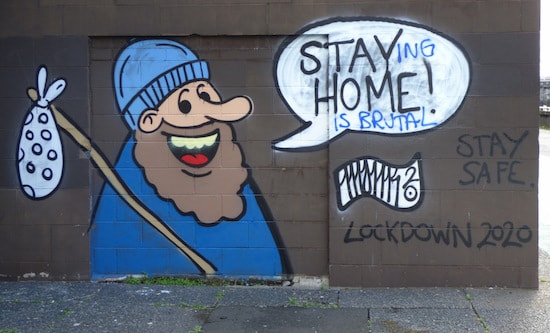
On 22 July, government figures showed that during the January-March lockdown this year, one household in England became homeless every three minutes. Despite the ‘eviction moratorium’ still being in place, over this period 68,250 households approached their local council and were found to be homeless or at risk of homelessness. Following the lifting of even the limited ban on evictions on 31 May, a YouGov survey has found that a further 400,000 households – approximately 5% of all renters in both the private and social sector – have already been served an eviction notice, with around a million more worried about being evicted in the next three months. What we are witnessing is an acceleration of Britain’s profound housing crisis, fuelled by the coronavirus crisis but in itself a product of capitalism’s increasing inability to provide safe, affordable and decent housing for the mass of the working class.
While homeowners were protected by a mortgage holiday during the coronavirus crisis, there was no such protection for tenants; many of those in low-paid work lost their jobs, or saw their income plummet and have accrued huge rent arrears. Thousands were thrown onto the inadequate benefits system, with debt inbuilt in the delayed payment of Universal Credit; many for the first time became subject to the Overall Benefit Cap which limits the amount of benefits any one household can receive, coupled with high rents particularly in major cities. A record 200,000 households had their benefits capped during February, more than twice the 77,700 affected in the same period last year. That included 166,200 households with children, and 117,200 with single parents. The average cut in income was £400 a month, but 1,900 households lost more than £1,000 a month. At the same time the funds available to councils for Discretionary Housing Payments – financial assistance that can help meet rent shortfalls – has been cut by 22%. One in ten private renters is now behind on their rent – for the first time, evictions in the private rented sector outnumber those in social housing.
The looming prospect of the end of furlough and the removal of the £20 ‘uplift’ on Universal Credit in October means thousands more households face the imminent threat of homelessness. Already an increasing number of households, particularly those with children, are facing desperate conditions. During the lockdown, one in five homeless households were placed in emergency B&Bs and hostels, where living conditions are notoriously poor and cramped. At the end of March 2021, 119,830 children were living in this unsuitable accommodation.
Rough sleeping – the most visible sign of the homelessness crisis – is on the rise again, following the end of the successful ‘Everyone In’ programme implemented during the pandemic. On 15 May, local councils were instructed to ‘reduce the number of people accommodated in hotels and other emergency accommodation’.
1,000 people are at immediate risk of returning to sleeping on the streets, according to the charity HomelessLink. While ‘Everyone In’ took no account of immigration status, this racist government has made it clear that anyone with ‘no recourse to public funds’ is to be excluded from any new local authority provision. Street homelessness is once again starkly evident – having almost doubled in the last ten years – and housing charities report a sharp rise in the number of women sleeping rough, many driven from their homes not just by poverty but also the increased threat of domestic violence during lockdown.
Neither political party has any solution to the housing crisis. What is needed is the provision of hundreds of thousands of units of affordable, publicly owned housing – a mass council house-building programme, not the pathetic delivery of limited amounts of ‘affordable housing’ that is anything but. In September 2020, the National Housing Federation estimated 1.6 million households in England were in housing need – far more than shown on local authority housing waiting lists. Yet the same year, just 57,644 so-called ‘affordable homes’ were built; only 6,566 were for social rent. In the short term, we must demand a cancelling of all rent arrears accrued during the economic turmoil of the pandemic, the requisitioning and refurbishment of the country’s thousands of empty homes for those who need them and an end to all evictions. The housing crisis is intensifying and affecting ever wider sections of the working class. There is a desperate need to stand up, organise and fight back – for decent housing, and against the system that is continuing to plunge so many thousands of working class people into desperation, poverty and homelessness.
Alex Scurr
Fight Racism! Fight Imperialism! No 283, August/September 2021




